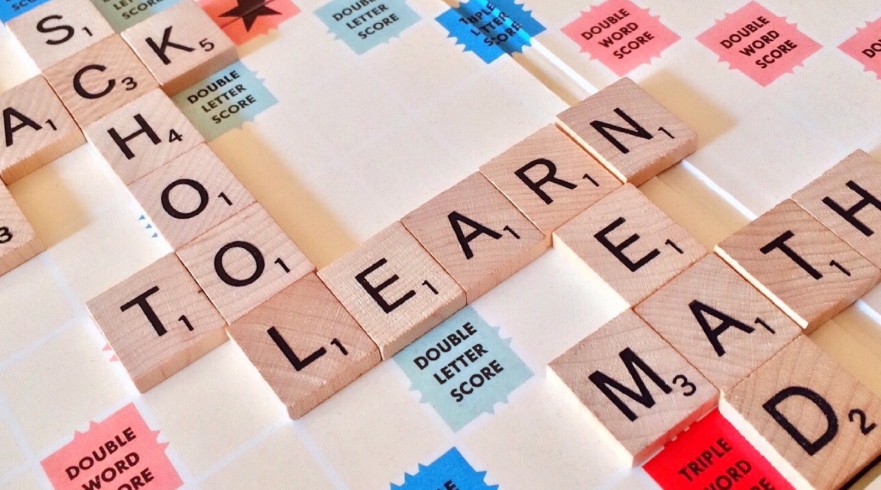I think COVID-19 has made us aware of things that were taken for granted such as grocery store workers, the freedom to leave your house whenever you wish, having a job, and a teacher’s role in a child’s life. Many parents have taken a more active part in their child’s education from home, and are gaining a new perspective of what it is like to be a teacher. I think the consensus now is that public schools matter!
Teachers have known this for a while, and would quietly whisper “public schools matter” to themselves when funding initiatives fell through and their students got the short end of the stick. Recently, teachers have been finding their voices and saying loudly and confidently that public schools matter. I spoke with a teacher who has found her voice, the amazing Beth Lewis from Save Our Schools Arizona to see what Save Our Schools is working on now, what teachers can do to help, what they want teachers and families to know. So, here is a conversation I had with Beth Lewis about what Save Our Schools is doing now, what they want us to know, and how we can get involved.
Caitlin: What is Save Our Schools working on right now?
Beth: Save Our Schools has a lot of spinning plates and a lot going on right now, but our key objective is focusing on building awareness around the classroom crisis in Arizona right now. That includes teachers, who know what is going on right now, but also parents and community members who hear a lot of the media and hear that we are investing in education and everything is fine and dandy right now. We consider it our job to go out and tell people that it is not the case, and that we are 49th in teacher pay, that we are still 46th in the nation in per-pupil spending, and explain any of the misinformation that has been spread. We have committed to webinars that are public-facing, and some that we are invited to present. We do a lot with the press to make sure the press is getting an accurate view of what is going on.
We are also active at the legislature. We have thousands of volunteers around the state calling and emailing legislators and collecting signatures. We work with lawmakers and develop policy, we push for really good policies and fight bad policies. A lot of our work is around privatization. People do not realize how much money is devoted to private school vouchers every year. The key issue at hand is around the strategic cuts that have taken place over the past two decades, which are frequently from people who are trying to push vouchers. We are seeing this sleight of hand, and we will cut funding and say that public schools are failing and push these private options instead. We see this all around the country from people who have a lot of monetary interest in this. Our classrooms will become the victims of political decisions, so we need to make sure that people are not afraid to have these conversations. It is not a partisan issue, not about being Republican versus Democrat. This is about making sure we are focused on our public schools since they are what most of our children attend and what most families choose. All of the partisan fighting is not helping.
We formed to fight universal voucher expansion, which was successful with No on Proposition 305. We have built upon that and have launched the Save Our Schools Act, which is a citizens’ initiative, and much like Invest in Ed, we have to collect 350,000 signatures. This will limit private school vouchers to cap at 1% of the Arizona student population. The goal of privatizers would be to have every child on a voucher, to use kind of like Amazon. Some kids could use them for pottery and horseback riding, while others would use them for public schools.
These vouchers have been growing for 20 years, and there were some efforts to stop them, but nothing with full gusto. When we formed, much of the attitude was that “We do not understand vouchers, and do not have the time or resources to fight this.” It was almost like everybody was kind of laying down over the issue. The reality is that we are already spending 264 million dollars a year over this, and they are growing every year.
Caitlin: I think the time when Save Our Schools was founded was critical because there was a movement growing of people who wanted to do something about the conditions we were experiencing.
Beth: I think it naturally grew for exactly that reason. People were like “Where do we point the fingers?” We were all frustrated about seeing our classrooms be decimated and losing programs. I think my journey is similar to a lot of parents and teachers. At first, you are mad at the principal, and then you realize it is not the principal’s fault, they don’t have any money. So, then you look at the school board. I can point fingers over there, but they can only pass the budget with the money they are allotted. So then you start realizing that the state legislature is where these decisions are made. I think then we had that “aha” moment of “that is where the decisions are made so that is where we should focus.”
Caitlin: It is helpful to have that information, too. I think a lot of people, myself included back then, felt like “why should I even try since whatever I do isn’t going to make a difference.” I think what we have seen from Save Our Schools is empowering, and it shows people that you can make a difference. You have to be willing to do the fight, and when the right people come together at the right time, that is when change can happen.
Beth: I think that we have tried to open our network up to everybody. It cannot just be teachers. When we go down to the legislature, unfortunately, they do not always listen to teachers. As teachers, I think we feel easily dismissed because they feel we have a vested interest in this, or that we just want our paycheck. That is not why we are here! When parents, concerned citizens, retirees, and business leaders come together saying the same thing it is a stronger voice.
Caitlin: What do you want teachers to know about Save Our Schools and how they can get involved?
Beth: The biggest thing is that this is a marathon and not a sprint. Public schools have been chipped away at for more than 20 years, and I think it is important for everybody to take those deep breaths and understand that just because we won one battle against vouchers does not mean that everything is going to get better. But that is okay. We will keep fighting and band together. We need to really, truly be united. We need to keep our eyes on the prize and realize that this is what is best for kids. This is a fight about love for kids and doing what is right for them. I think that what can kill a movement is that when everybody is so angry and wants a quick fix right away.
Teacher’s stories matter the most. You might feel like you are talking about it ad nauseam, but your neighbor, your community members, and your parents need to understand our goals. They need to be able to understand, “Why don’t we have tutoring or new books? Or laptops?” I think those stories right now matter more than ever, and that your voice does matter at the legislature. We need to keep going down there and keep making those calls. If you feel ignored, keep going.
Caitlin: What do you want parents to know about the work Save Our Schools is doing?
Beth: Parents’ voices matter. We as teachers and public school champions, are not in it for our paychecks. We are in this for the kids, and to make an impact on the lives of children, not to make a buck. We need parents to raise their voices and to stand by our sides.
Caitlin: What do you want administrators to know about the work Save Our Schools is doing?
Beth: Administrators need to feel supported, too. A lot of the misinformation that has been spread is about administrators, and that they have these exorbitant paychecks. We know that is not true. We see the work they do every day. I think that when administrators are willing to fight alongside teachers and parents and band together, it’s powerful. It shows teachers that we do not need to be afraid to use our voices as long as we do so within the confines of the law. There are some districts where teachers are afraid to speak up, and I think that when administrators are willing to go out on a limb, the more likely it is teachers will, too.
Caitlin: What can teachers do to support the work Save Our Schools?
Beth: Everybody is at their comfort level now. I think pushing yourself one tiny step further is all we can ever ask anybody to do. For example, if you are at level 1, you might talk about it with your best friends, but not post about it on social media because you do not want to be called “political.” Maybe the next step could be to post something, not partisan, or change your profile picture. Maybe you could say publicly, that you support public schools.
If you are already at that level, then put your local legislative district lawmakers on speed dial. When the legislative session begins, call your representative, and say “Hey, I support public education and, as your constituent, I want you to, too!”
If you are already past that, we will need many people to spread the word about collecting signatures for the various education initiatives on the ballot like the Save Our Schools Act and the Invest in Ed Act. We do not know if that will be in person right now, or whether the Arizona Supreme Court will rule that we can collect electronic signatures.
It is just about getting out of your comfort zone as much as you are able, and saying that you support public schools. And, asking your lawmakers to, too!
Caitlin: Is there anything else that you want the public to know?
Beth: Public schools really matter. They are the central part of our communities, and the more we can invest in neighborhood schools the better our entire state can be. If we focus on creating a private system, then we are creating a system of haves and have nots.
Instead, banding together and lifting up our public schools and investing in them will help our kids who need it the most. We want all of our children to have an education and have a chance to achieve whatever they want in this world.
Remember, this is a marathon and not a sprint. There has been more support in recent years than in the past decade, but things are far from fine and dandy in public schools. Schools still have large class sizes, there is still a teacher shortage, many teachers are on alternative certificates, buildings are falling apart, the curriculum is outdated, and these are just things off the top of my head. This is the reality many children in Arizona receive when they go to school, and there is much of the marathon left to run before schools across Arizona will be equipped to meet all the needs of all our students. To impact change, teachers, administrators, and parents need to find our voices and work together with our lawmakers to create policies that support public schools because public schools REALLY matter!









